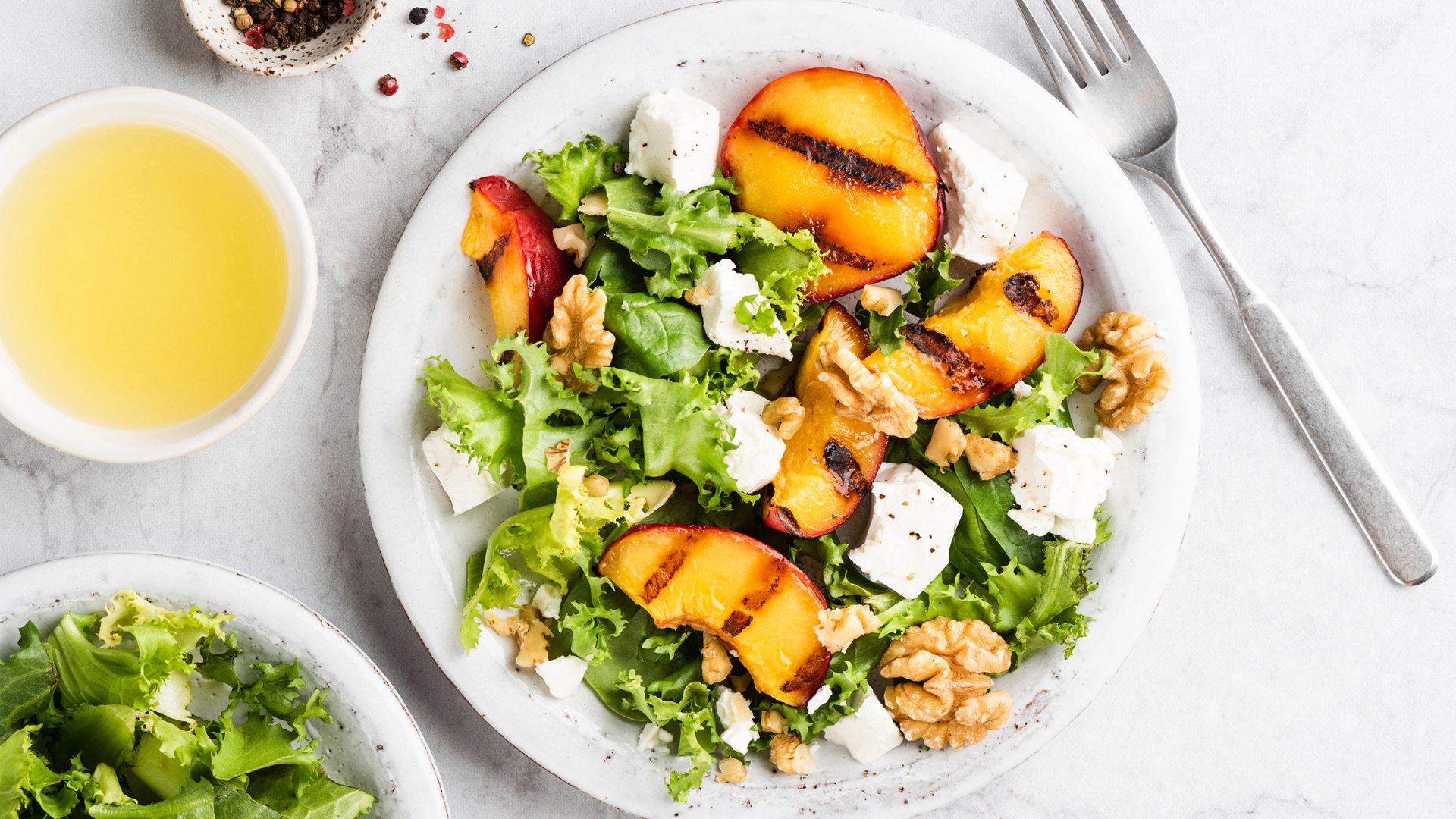What is the 5:2 diet?
The 5:2 diet is a popular fasting method. Here's everything you need to know, from what to eat to potential risks

Get the world’s most fascinating discoveries delivered straight to your inbox.
You are now subscribed
Your newsletter sign-up was successful
Want to add more newsletters?

Delivered Daily
Daily Newsletter
Sign up for the latest discoveries, groundbreaking research and fascinating breakthroughs that impact you and the wider world direct to your inbox.

Once a week
Life's Little Mysteries
Feed your curiosity with an exclusive mystery every week, solved with science and delivered direct to your inbox before it's seen anywhere else.

Once a week
How It Works
Sign up to our free science & technology newsletter for your weekly fix of fascinating articles, quick quizzes, amazing images, and more

Delivered daily
Space.com Newsletter
Breaking space news, the latest updates on rocket launches, skywatching events and more!

Once a month
Watch This Space
Sign up to our monthly entertainment newsletter to keep up with all our coverage of the latest sci-fi and space movies, tv shows, games and books.

Once a week
Night Sky This Week
Discover this week's must-see night sky events, moon phases, and stunning astrophotos. Sign up for our skywatching newsletter and explore the universe with us!
Join the club
Get full access to premium articles, exclusive features and a growing list of member rewards.
The 5:2 diet involves eating normally for five days a week, then cutting your calorie intake to between 500-600 calories per day for two days. This part-time dieting approach, or style of intermittent fasting, focuses more on when you eat, than what you eat.
Fasting, and intermittent fasting, have been around for years, and studies, such as a review published in the New England Journal of Medicine, have found it can have many health benefits including weight loss, regulating blood sugars, cell regeneration and better brain health.
“It’s quite a flexible diet as for five days you’re not restricted, so if you have a social event to go to you can plan to fast on the days that you aren’t eating out,” says functional medicine practitioner Danny Ly. “It also keeps you in a calorie deficit for the week meaning you’re more likely to still lose weight.”
If the 5:2 isn’t your style, there are other plans you can try including intermittent fasting 16:8 and alternate day fasting. Read on to find out more about the 5:2 diet and whether it’s right for you.
What is the 5:2 diet?
“The 5:2 diet is a form of intermittent fasting that suggests two very low-calorie days, usually no more than 500 calories,” explains Ly. “The other five days of the week you eat ‘normally’ without having to track calories or restrict any types of foods.”
Sometimes called the Fast Diet, the 5:2 was popularized by Dr Michael Mosley. Since then, the diet has been developed and renamed ‘The New 5:2’.
“When following The New 5:2, schedule two days a week as 800-calorie fasting days, and follow a healthy Mediterranean-style diet for the rest of the week, with no calorie restriction, just sensible portions,” says Mosely.
Get the world’s most fascinating discoveries delivered straight to your inbox.
“Intermittent fasting, especially incorporating a Mediterranean diet, is a great tool for those wanting slower, steady weight loss or weight management. It has been shown to improve insulin sensitivity and reduce blood pressure and may be a supportive plan for people with these conditions. It provides more food freedom by only restricting calories for two days per week.”
Mosley explains that on fast days, your body will enter a state of ketosis. “You will lose visceral fat and achieve a better response to insulin,” he says. “This, in turn, will make it easier for you to keep to sensible portions, and avoid snacking, during the rest of the week.”

What are the benefits of the 5:2 diet?
According to Ly, a study in the Clinical Nutrition Journal found the 5:2 diet to be a safe and effective protocol for weight loss. It has generally been accepted by researchers as ‘easy to follow’ too.
Adding in additional factors for dieters, such as group support, increased adherence and impact, research in PLOS One found.
While there aren’t many studies specifically on the 5:2 diet, research into intermittent fasting has revealed some great health benefits. These include changes in body composition, fat loss, improved heart health and lowered blood sugar levels.
One study published in the Canadian Family Physician journal found that intermittent fasting could aid weight loss in a similar way to calorie restriction, and it could also help to reduce cholesterol.
Research in the Journal of the Academy of Nutrition and Dietetics that looked into the health benefits of alternate day fasting, which is similar to the 5:2 diet, found it could reduce insulin resistance, asthma and even menopausal hot flushes.
“Fasting can increase innate healing mechanisms in the body such as autophagy, which is where your body cleans out old and damaged cells,” says Carolyn Nicholas, functional medicine certified health coach and director of Health Coaching app Able. “Fasting can also help you to become ‘metabolically flexible’, basically switching between burning glucose or ketones (fat) for fuel.”
How to eat on fast days
One of the big pulls of the 5:2 diet is that you only have to restrict your calorie intake for two non-consecutive days a week. Dieters should eat just 25% of their usual calories, which works out at around 500 for women and 600 for men. Depending on your preference, that can equate to three small meals or two larger ones.
Ly says: “It is important to be savvy here and learn how to ‘stretch a calorie’. Eating high volume low calorie foods like vegetables, low calorie fruits like berries, lean protein like chicken, turkey or fish, cauliflower rice and low calorie soups are important, as well as having set meal times across the day so you are psychologically prepared better.
“Another popular approach is to fast in the morning to save up calories for the evening meal, but this can lead to binges if you are too hungry, so I would be cautious about this approach. Using black coffee in the morning as an appetite suppressant works well for some too. Be sure to stay on top of water and fluid intake.”
Why not invest in one of the best water bottles to help you to stay hydrated?

Nicholas adds: “There is no real hard and fast rule when it comes to these fasting days apart from the number of calories, however, remember that not all calories are created equal. Start with mindset. Instead of thinking, ‘What can I eat?’, flip it around and ask yourself, ‘What can I nourish myself with?’
“Fresh veggies, low glycemic fruits such as berries, nuts, seeds, olives, other good fats and high-quality proteins like wild fish or pastured meats and eggs are good options,” she adds. “Fresh vegetables will give you lots of fiber and they are naturally lower in calories so you could eat more of these. Good fats and proteins will help you feel fuller longer too, give you energy, and can also help with any cravings.”
- Related: What are high protein foods?
- Related: The best vegan sources of protein
How to eat on regular days
One of the biggest draws of the 5:2 diet is its simplicity – that and the fact you can pretty much eat what you want five days a week, although a healthy and balanced meal plan is advised. Dieters can consume a ‘normal’ amount of calories five days a week.
But Nicholas warns: “This really isn’t a hall pass to go crazy and binge on junk food. If you can stick with the fundamentals I mentioned – eating fresh veg, good fats and lots of fiber – then you will find yourself starting to look and feel your best faster and more sustainably. “
You can expect to lose about 1lb a week on the 5:2 diet, which is a safe and sustainable amount as per the Centers for Disease Control and Prevention (CDC) guidelines.

Is the 5:2 diet safe?
The 5:2 diet might be a good option for healthy, well nourished people looking to lose weight but it’s not recommended for everyone, says Dr. Naomi Newman-Beinart.
These include:
- People with an eating disorder or history of an eating disorder
- Pregnant women or women trying to conceive
- Children or teenagers
- Anyone with health conditions (diabetics, thyroid disorders)
- Anyone underweight or malnourished
- People with low blood sugar and/or prone to dizziness and fainting
Dr Newman-Beinart says: “To be honest, it’s also not a particularly safe option for people with mental health disorders, especially depression and anxiety, as a dramatic drop in calories can cause brain fog, dizziness and poor concentration, which could potentially exacerbate emotional disorders.
“Intermittent fasting has been found to have certain health benefits, including a reduced risk of cardiovascular disease and improving insulin metabolism, however research has generally been based around a 16/8 or 14/10 diet.
“These options mean that you are not restricting important nutrients for two days out of five each week, and when combined with a healthy diet and lifestyle, they have been shown to be effective for weight loss.”
This article is for informational purposes only and is not meant to offer medical advice.

Maddy Biddulph is a freelance health and fitness journalist with over 26 years of experience working for consumer media in the US and UK. As a Level 3 personal trainer and weight loss advisor she is used to trying out and reviewing the latest health and fitness products. At Maddy Biddulph Personal Training, she runs one-to-one and small group sessions, as well as group exercise classes. She specializes in mobility work with seniors and runs regular chair workouts in her hometown of Oxford.
 Live Science Plus
Live Science Plus










